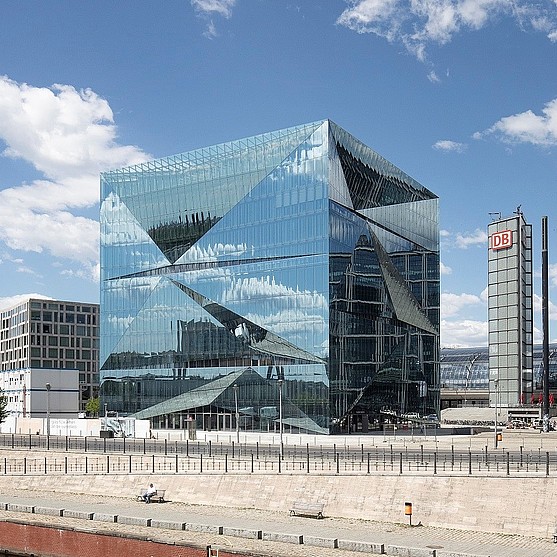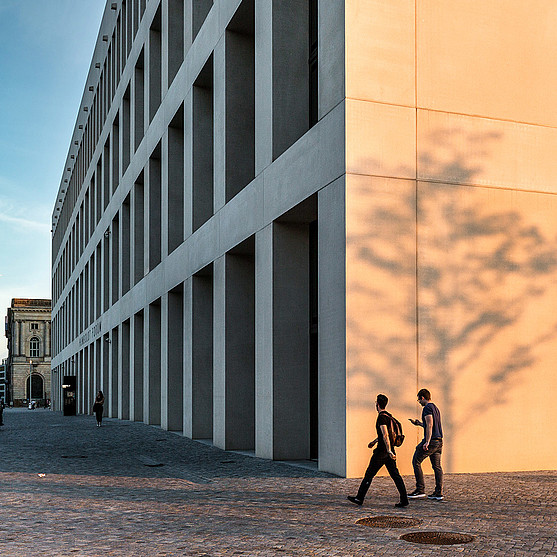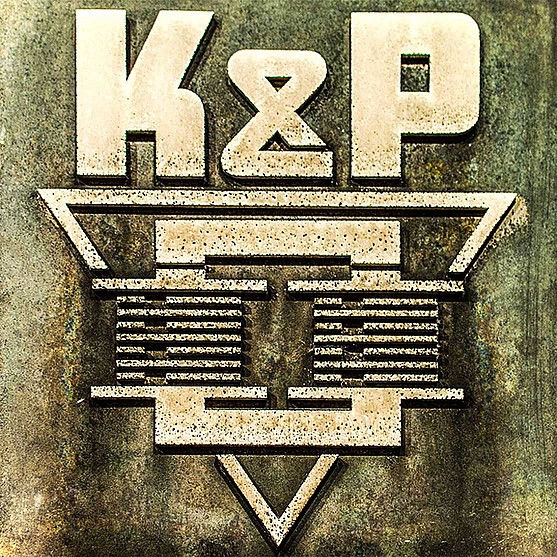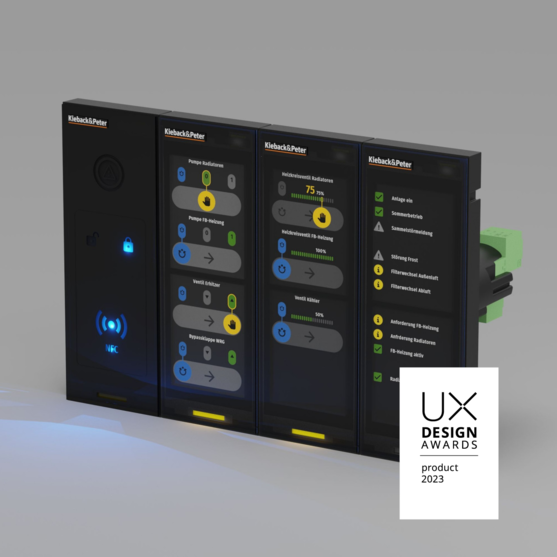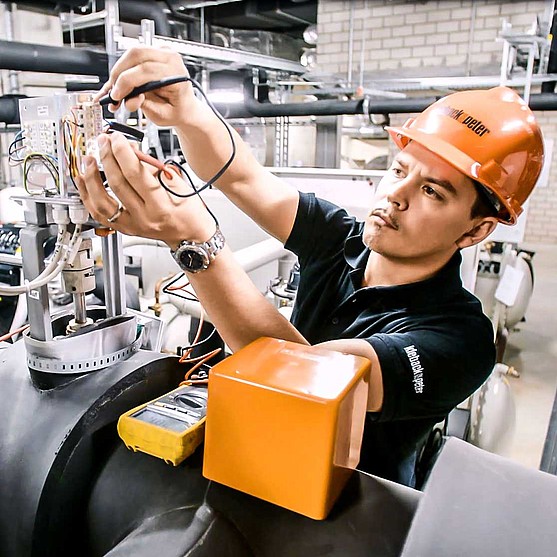Reducing CO₂: en:hybrid – the intelligent pacesetter for hybrid heating systems
![Barrierefreier Übergang vom Technikum III zu den Bestandsgebäuden [Translate to English:] Barrierefreier Übergang vom Technikum III zu den Bestandsgebäuden im Fraunhofer Institut für Silicatforschung](/fileadmin/_processed_/8/a/csm_FraunhoferISC-Glasuebergang_kieback-peter_bfc03bf6ac.jpg)
The launch of en:hybrid sees Kieback&Peter start a new chapter in the story of sustainable building automation: this innovative solution is not just a significant milestone on the Kieback&Peter CO₂ Reduction Roadmap (stage 5 “Developing an Optimization Plan”). It also provides extra efficiency and is a driver of success in the heat transition.
Hybrid systems need pacesetters
The use of multiple heat or cold generators with a whole range of different technologies is now standard in most buildings. Alongside gas and oil heating, systems based on renewable energy sources are becoming more and more common. The heat transition has intensified this trend even more.
The problem: without organization, the different types of technology cannot work with each other in the optimal way. “Peak load boilers start up too often and therefore wear very quickly. Buffer storage units charge at the wrong time, meaning they work inefficiently. Supply temperatures stay at an unnecessarily high level, wasting primary energy and making the use of heat pumps difficult,” explains Clemens Nonn, Product Manager at Kieback&Peter.
en:hybrid orchestrates the plant room
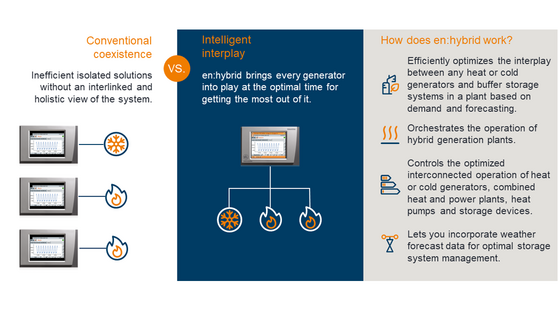
en:hybrid changes everything! The solution works proactively, using sensors to continuously monitor the entire system and making targeted interventions to ensure that each connected generator is always operating at the optimum level.
It works just as well with both existing systems and new installations. The results of its fine-tuning reveal themselves in significant energy savings, which can be even further maximized through optimizations in the system hydraulics.
Subsidies for mastering the heat transition
The benefits of en:hybrid are clear to see: the system controller works with all kinds of devices, regardless of manufacturer. The comparably low investment outlay pays off quickly with plant operation that is measurably more efficient. For instance, the solution ensures that a storage unit only charges when there is a foreseeable demand – thanks to the integration of weather forecasts. Since en:hybrid enables the fulfillment of the future legal standard of building automation level B in central heating or cooling systems, private individuals, companies, local authorities and non-profit organizations benefit from interesting funding opportunities.
Want an insight into a successful project?

Smart building efficiency “Made in Germany”
The fact that en:hybrid delivers measurable benefits for your building operation is no coincidence, since it is developed by Kieback&Peter. The specialists in smart building automation have been ensuring efficiency, comfort and safety since 1927, with over 1500 employees worldwide.

